Projects
Ongoing Projects
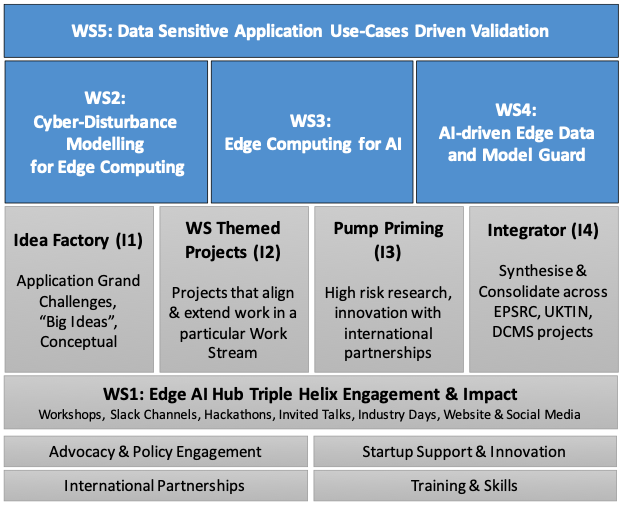
National Edge AI Hub for Real Data: Edge Intelligence for Cyber-disturbances and Data Quality
Funding Agency: EPSRC
Funding: £11,999,971.34 Duration: 1 February 2024 – 31 January 2028
Industrial Funding: £2,757,305
Hub PI: Prof. Rajiv Ranjan (Newcastle University).
Durham Team: Dr. Yang Long (PI), Dr. Gagangeet Singh Aujla (Co-I), Prof. Toby Bracken (Co-I), Dr. Anish Jindal (Co-I), Dr. JingJing Deng (Co-I), and Prof. Karena Yan (Co-I).
Academic Partners: Imperial College London, University of West of Scotland, Cardiff University, Queens University Belfast, University of Hull, Warwick University, University of Southampton, Swansea University, Lancaster University
Website Link: https://edgeaihub.co.uk

CHEDDAR: Communications Hub for Empowering Distributed clouD computing Applications and Research – TMF uplift
Funding Agency: EPSRC and DSIT (Technology Missions Fund-Value for Money)
Funding: £ 8,558,479. Duration: 1 December 2023 – 31 March 2025
Hub PI: Professor Julie McCann, Vice-Dean (Research) for Imperial’s Faculty of Engineering
Durham Team: Prof. Hongjiang Sun (PI), Dr Aissa Ikhlef (Co-I), Dr. Gagangeet Singh Aujla (Co-I), Dr. Anish Jindal (Co-I), and Dr. Wanqing Tu (Co-I)
Academic Partners: Imperial College London (Lead), University of Glasgow, University of York, University of Leeds, Cranfield University
Website Link: https://cheddarhub.org
Weblink: EP/Y037421/1

Virtual Power Plant with Artificial intelligence for Resilience and Decarbonisation
Funding Agency: EPSRC
Funding: £1,845,327 Duration: 1 May 2023 – 31 Mar 2025
Durham Team: Prof. Hongjiang Sun (PI), Dr. Anish Jindal (Co-I), and Dr. Gagangeet Singh Aujla (Co-I).
Academic Partners: University of Edinburgh, University of Birmingham, Northumbria University
Industry Partners: TNEI, Northumbrian Water, Kinewell Energy, CFMS Services Ltd, Equinor, MithraSol, Durham County Council, National Grid ESO, DVV GL, Siemens pls (UK), Northern Powergrid
Website Link: https://www.vppward.com/
Weblink: EP/Y005376/1
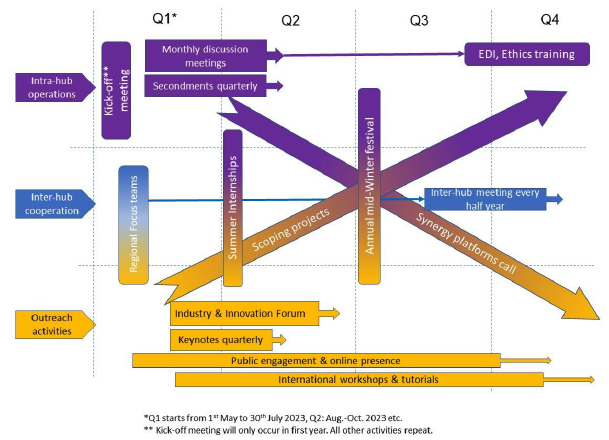
CHEDDAR: Communications Hub for Empowering Distributed clouD computing Applications and Research
Funding Agency: EPSRC
Funding: £ 3,028,049. Duration: 1 July 2023 – 30 Jun 2026
Hub PI: Professor Julie McCann, Vice-Dean (Research) for Imperial’s Faculty of Engineering
Durham Team: Prof. Hongjiang Sun (PI), Dr Aissa Ikhlef (Co-I), Dr. Gagangeet Singh Aujla (Co-I), Dr. Anish Jindal (Co-I), and Dr. Wanqing Tu (Co-I)
Academic Partners: Imperial College London (Lead), University of Glasgow, University of York, University of Leeds, Cranfield University
Website Link: https://cheddarhub.org
Weblink: EP/X040518/1

Course Development in Edge Computing and Analytics 2.0
Funding Agency: The British Council
Funding: £30,000 Duration: 2022-2024
Durham Team: Dr Anish Jindal (PI)
Partners: Cardiff University, UK; Egypt University of Informatics, Egypt; TKH, Egypt
Description: This project aims to develop course on edge computing and analytics 2.0 between UK and Egyptian universities and develop collaboration in order to build edge applications on smart cities, smart grids, water and energy management to achieve SDG goals.

Traffic Management In Smart Cities Using IoT For Reducing Carbon Emissions
Funding Agency: The Royal Society, Scheme: International Exchanges
Funding: £12,000 Duration: 2022-2024
Durham Team: Dr Anish Jindal (PI), Dr Gagangeet Singh Aujla (Co-I)
Partner: Dr. Luca Foschini, University of Bologna, Italy
Description: This project aims to provide an IoT-based transportation system which will contribute to the good health and well-being of citizens as well as provide better overall traffic flow in densely populated cities which helps the environment by reducing the harmful carbon emissions.

Carbon-Intelligent Computing for handling Uncertainties in Data Centers
Funding Agency: Durham SeedCorn Award
Funding: £11,552 Duration: 2022-2023
Durham Team: Dr Gagangeet Singh Aujla (PI), Dr Anish Jindal (Co-I), and Prof. Hongjian Sun (Co-I).
Partners: Prof. Omer Rana, Cardiff University, UK and Dr. Angelos Marnerides, University of Glasgow, UK
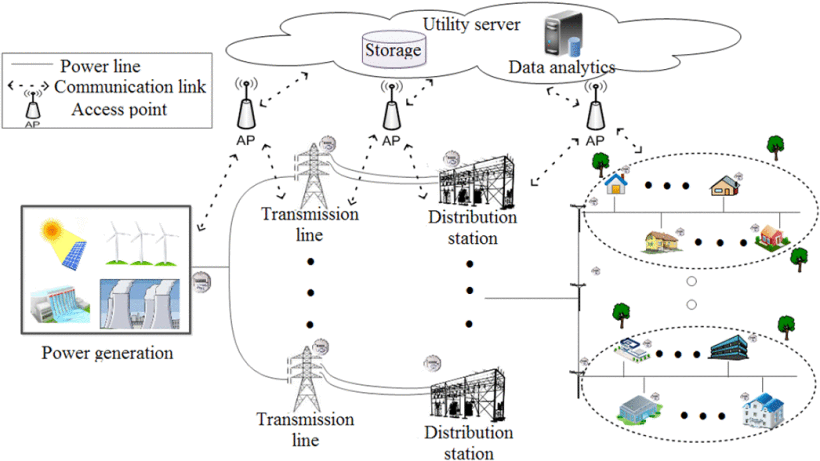
Programmable, secure and resilient IoT communication networks for smart grid
Funding Agency: The Royal Society, Scheme: International Exchanges
Funding: £12,000 Duration: 2022-2024
Durham Team: Dr Anish Jindal (PI)
Partner: Dr. Nurul Sarkar, Auckland University of Technology, New Zealand.
Description: This project aims to provide an Programmable, secure and resilient IoT communication networks for smart grid.
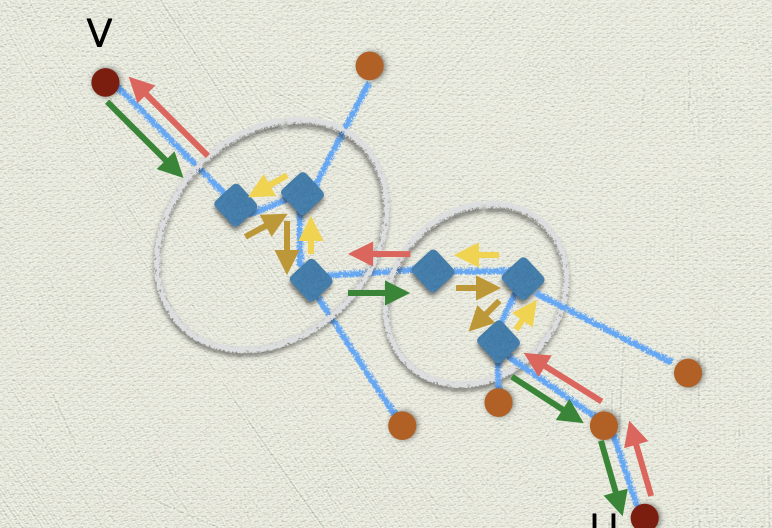
Resilient Self and Dynamic Data Stream Spanning Structures
Funding Agency: The Royal Society, Scheme: International Exchanges
Funding: £12,000 Duration: 2022-2024
Durham Team: Dr Amitabh Trehan (PI)
Partner: Dr. Michael Elkin, Ben-Gurion University of the Negev, Israel.
Description: This project aims to provide an Resilient Self and Dynamic Data Stream Spanning Structures.
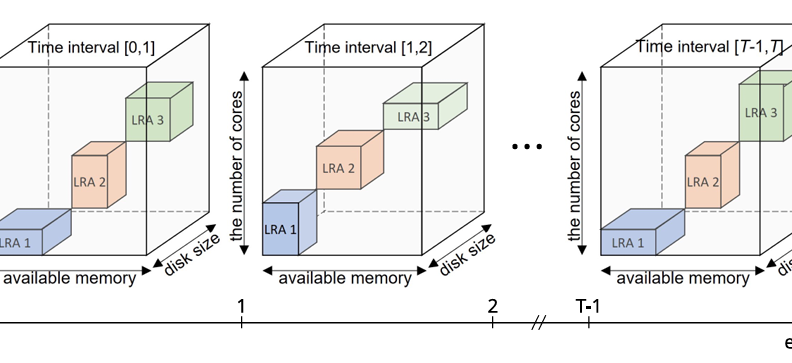
Algorithmic Support for Massive Scale Distributed Systems
Funding Agency: EPSRC
Funding: £1,010,659 Duration: 1 July 2020 – 30 April 2024
Principal Investigator: Dr Natalia Shakhlevich (University of Leeds)
Team: Prof Thomas Erlebach (Co-I)
Other academic Partners: Prof Jie Xu (University of Leeds), Prof Vitaly Strusevich (University of Greenwich)
Weblink: EP/T01461X/1
Completed Projects
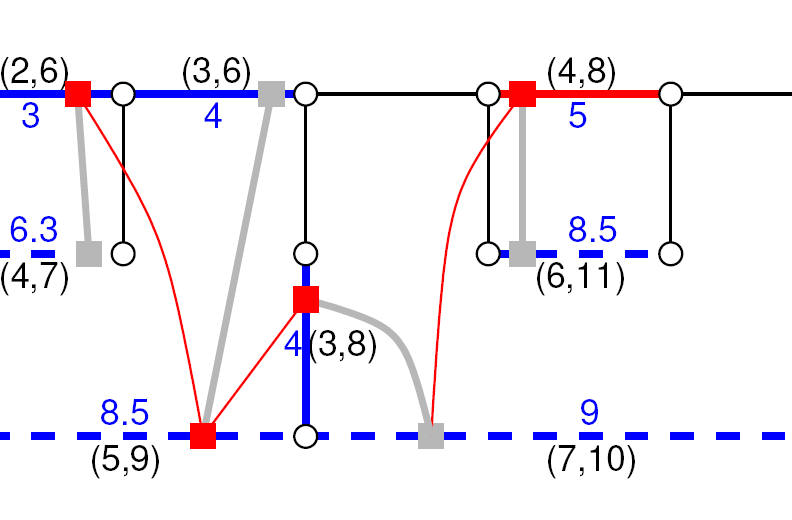
ACUTE (Algorithms for Computing with Uncertainty – Theory and Experiments)
Funding Agency: EPSRC
Funding: £401,205 (EP/S033483/) and £191,339 (EP/S033483/2)
Duration: EP/S033483/1: 01/11/2019-19/09/2021, EP/S033483/2: 20/09/2021-31/10/2023
Durham Team: Prof. Thomas Erlebach (PI) and Dr Amitabh Trehan (Co-I)
PostDoc: Konstantinos Dogeas (since September 2022)
Visiting Researchers and Collaborators:
- Ya-Chun Liang (University of Liverpool and National Tsing Hua University), October 2022
- Frank Kammer and Johannes Meintrup (THM, University of Applied Sciences Mittelhessen), February 2023,https://www.thm.de/mni/frank-kammer and https://www.thm.de/mni/johannes-meintrup
- Jens Schlöter (University of Bremen), March 2023,https://www.uni-bremen.de/en/cslog/team/jens-schloeter
- Christoph Dürr (Sorbonne Université), May 2023,https://webia.lip6.fr/~durrc/
- Evripidis Bampis (Sorbonne Université), September 2023,https://webia.lip6.fr/~bampise/
- Naveen Garg (IIT Delhi), October 2023, https://www.cse.iitd.ac.in/~naveen/
- Nicole Megow, University of Bremen
- Banu Baklan Şen (Kadir Has University), December 2022 – June 2023 (visiting PhD student)
Ex-Staff: Michael Hoffmann, University of Leicester (co-PI, until June 2021) and Murilo Santos de Lima (post-doc, until April 2021)
Website: https://sites.google.com/view/thomas-erlebach/home/acute
